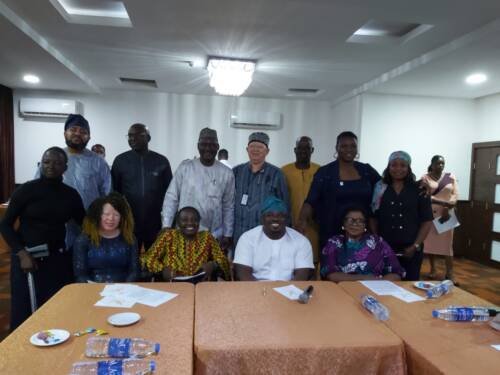The Accelerate Disability Inclusion in Emergencies (ADIE) Forum has urged the federal government to integrate its members into the joint federal government and labour negotiating committee on fuel subsidy removal.
The Co-chairperson, ADIE and Executive Director, Inclusive Friends Association (IFA), Christian Agbo, stated this while addressing a press conference on Monday in Abuja on the effects of the fuel subsidy removal policy on Nigerians, especially Persons with Disabilities (PWDs).
He also called on the federal government to incorporate into the planning, implementation, and monitoring of economic initiatives, especially those setup to manage savings from the fuel subsidy removal policy.
Agbo added that while the Forum understands the federal government’s fuel subsidy removal policy, it was regrettable that it was done without broad consultations and accompanying plans to mitigate
the difficult implications it is having on Nigerians.
He said that the forum also observed that there hasn’t been much progress with the joint federal government and labor negotiations as many sub-committees have simply not been inaugurated in the last two months.
Against this background, the group demanded that in line with Section 14 (2) (c) of the Nigerian Constitution which guarantees citizens the right to participate in the governance of the country, and Section 26 of the Discrimination Against Persons with Disabilities (Prohibition) Act, 2018, demanded integration of its members in the joint committee.
Agno stated: “The representatives of Organisations of Persons with Disabilities (OPDs) and Civil Society Organizations (CSOs) should be made members of the joint federal government and labour negotiating committee on fuel subsidy removal and incorporated into the planning, implementation, and monitoring of economic initiatives, especially those setup to manage savings from the fuel subsidy removal policy. “
The forum stressed that the federal, state, and local governments should introduce an affordable public transportation system that is accessible to PWDs beginning in September 2023.
The group noted that the program should provide discounted or free transportation vouchers, passes, or dedicated transportation services to ensure affordable and accessible transportation options for PWDs.
Agbo added that accessible transportation should include buses with adjustable ramps and handrails for wheelchair users, signage and electronic display for directions with audio announcements for the benefit of the deaf and the blind.
In her submission, Lois Auta, decried that there was no clarity on how marginalized groups like PWDs would be accommodated in the economic palliatives recently announced by the federal and state governments.
She said the federal and state governments should initiate a stand-alone social protection intervention for persons with PWDs, including establishing reliable databases of PWDs, food banks for an equitable distribution of economic palliatives to PWDs, and targeted financial assistance.

